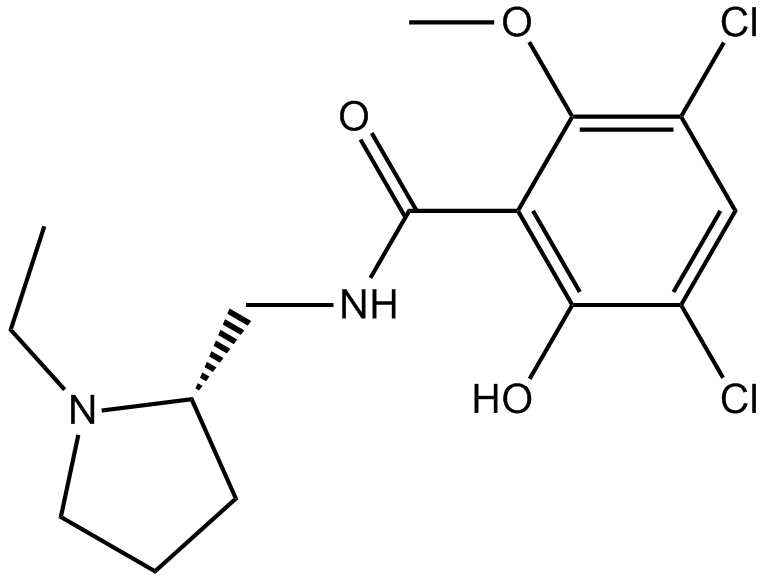Raclopride (Synonyms: (S)-(-)-Raclopride) |
| Catalog No.GC16769 |
dopamine D2/D3 receptor antagonist
Products are for research use only. Not for human use. We do not sell to patients.

Cas No.: 84225-95-6
Sample solution is provided at 25 µL, 10mM.
Raclopride is a dopamine D2/D3 receptor antagonist, which binds to D2 and D3 receptors with dissociation constants (Kis) of 1.8 nM and 3.5 nM, respectively, but has a very low affinity for D1 and D4 receptors with Kis of 18000 nM and 2400 nM, respectively[1].
References:
[1]. Seeman P, et al. Dopamine receptor pharmacology. Trends Pharmacol Sci. 1994 Jul;15(7):264-70.
Average Rating: 5 (Based on Reviews and 18 reference(s) in Google Scholar.)
GLPBIO products are for RESEARCH USE ONLY. Please make sure your review or question is research based.
Required fields are marked with *




















